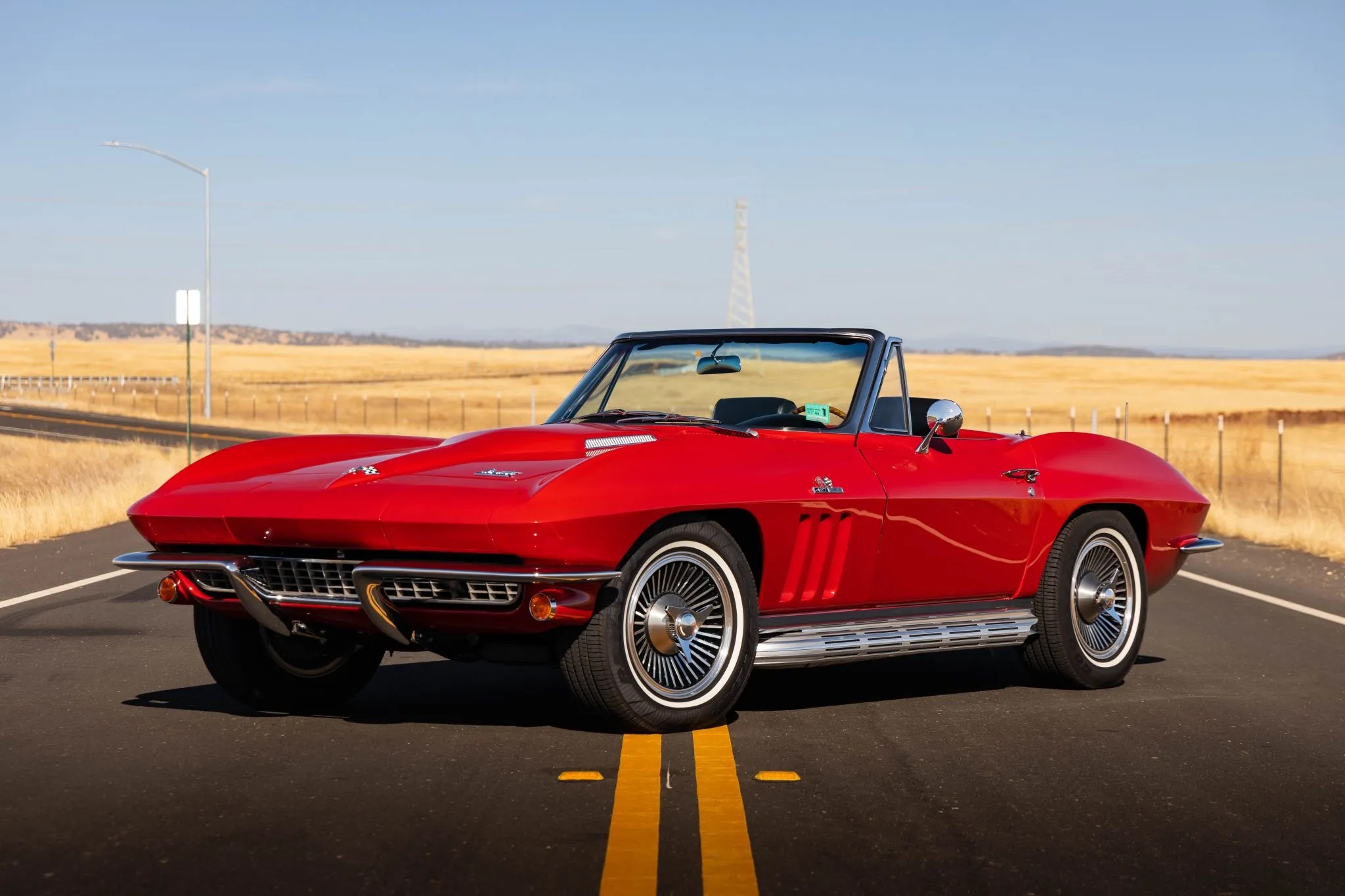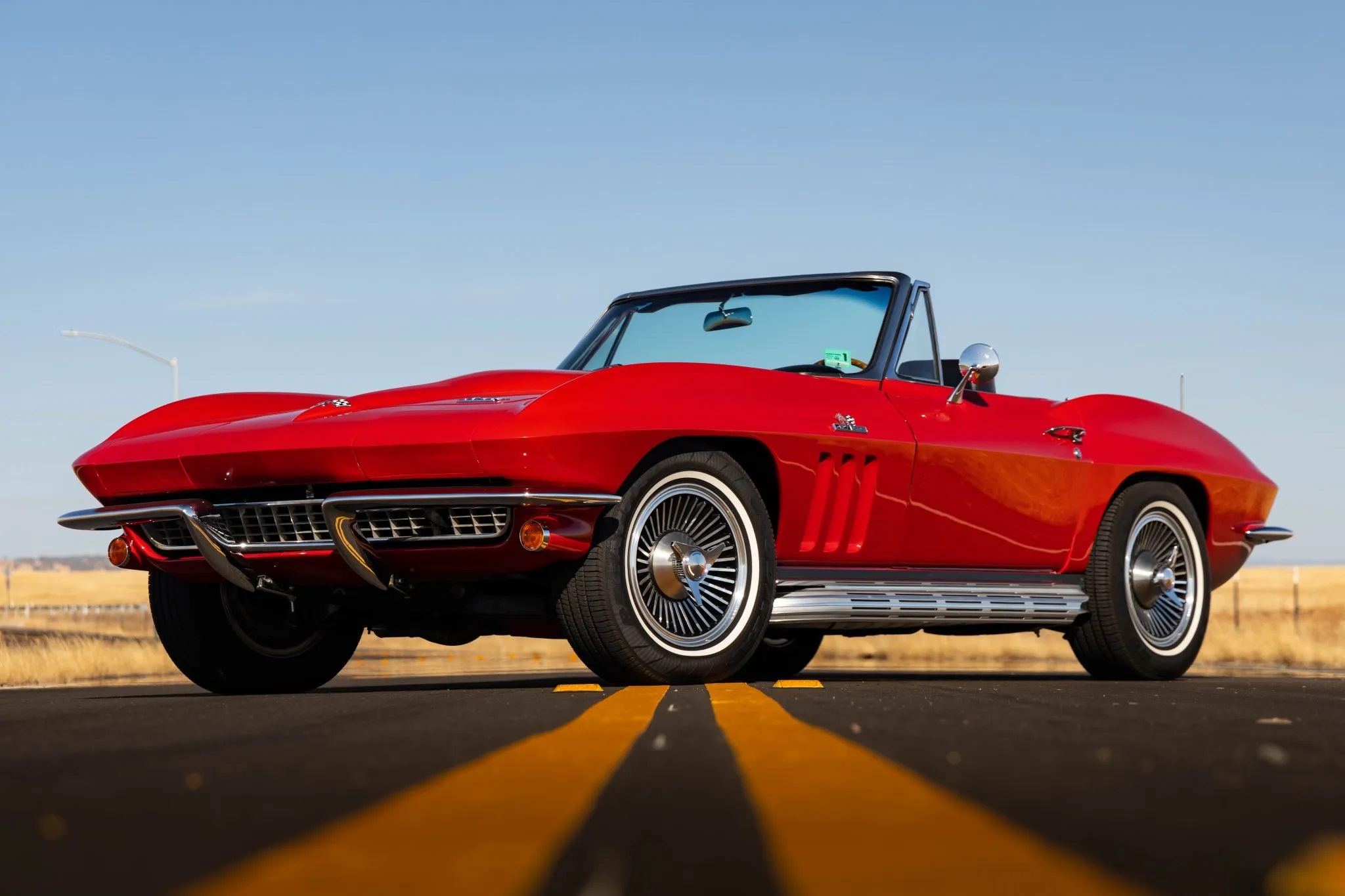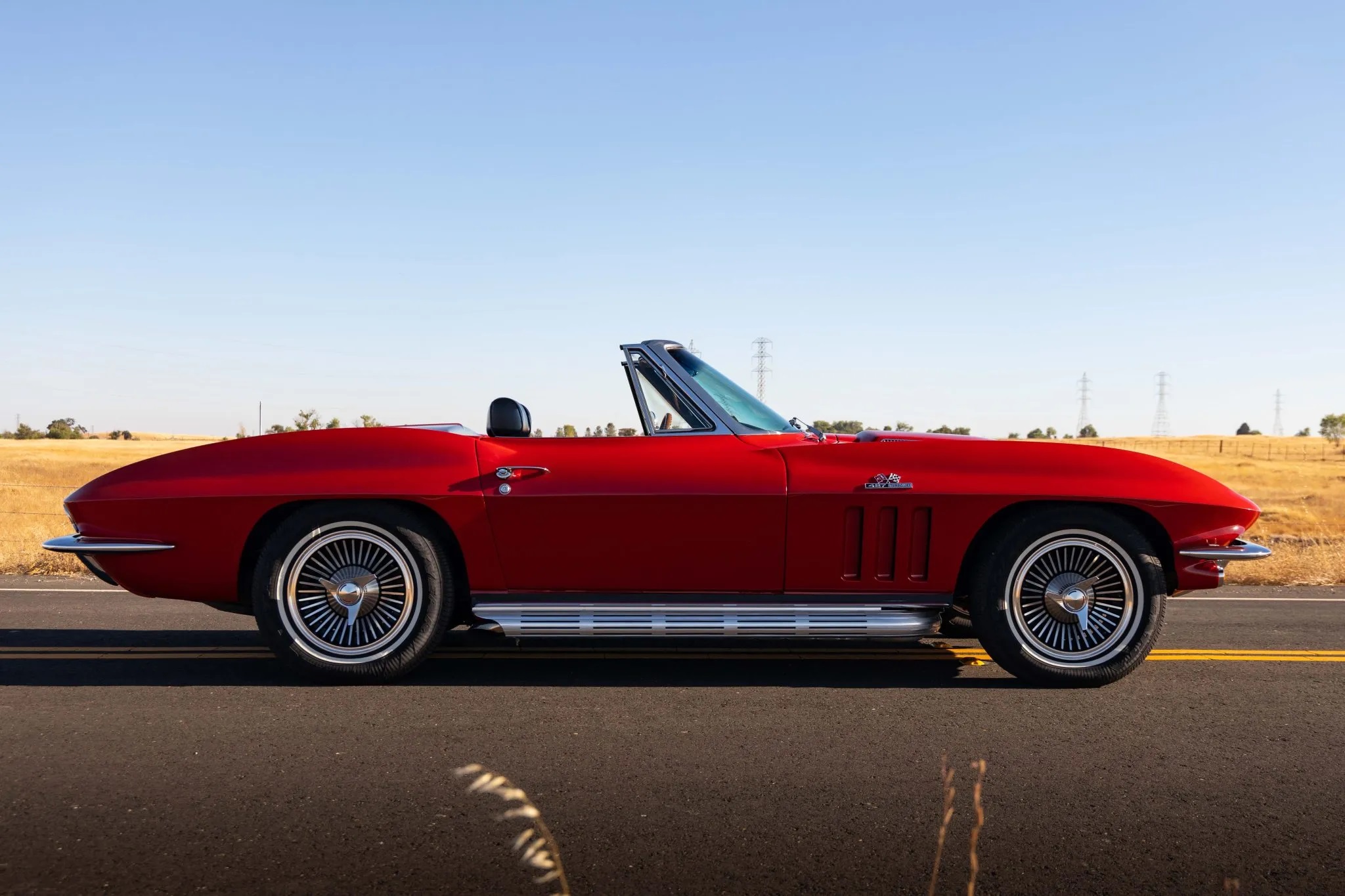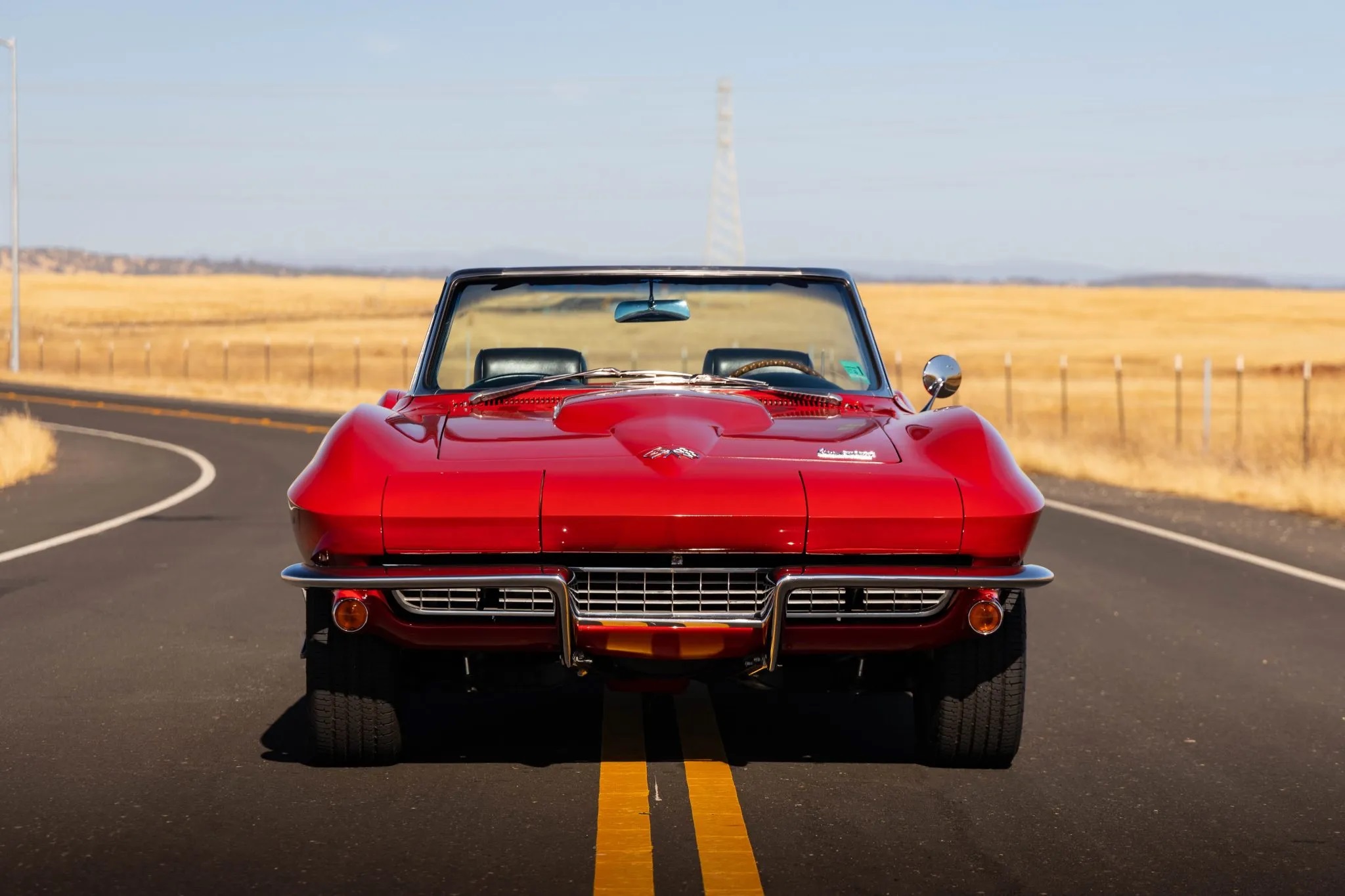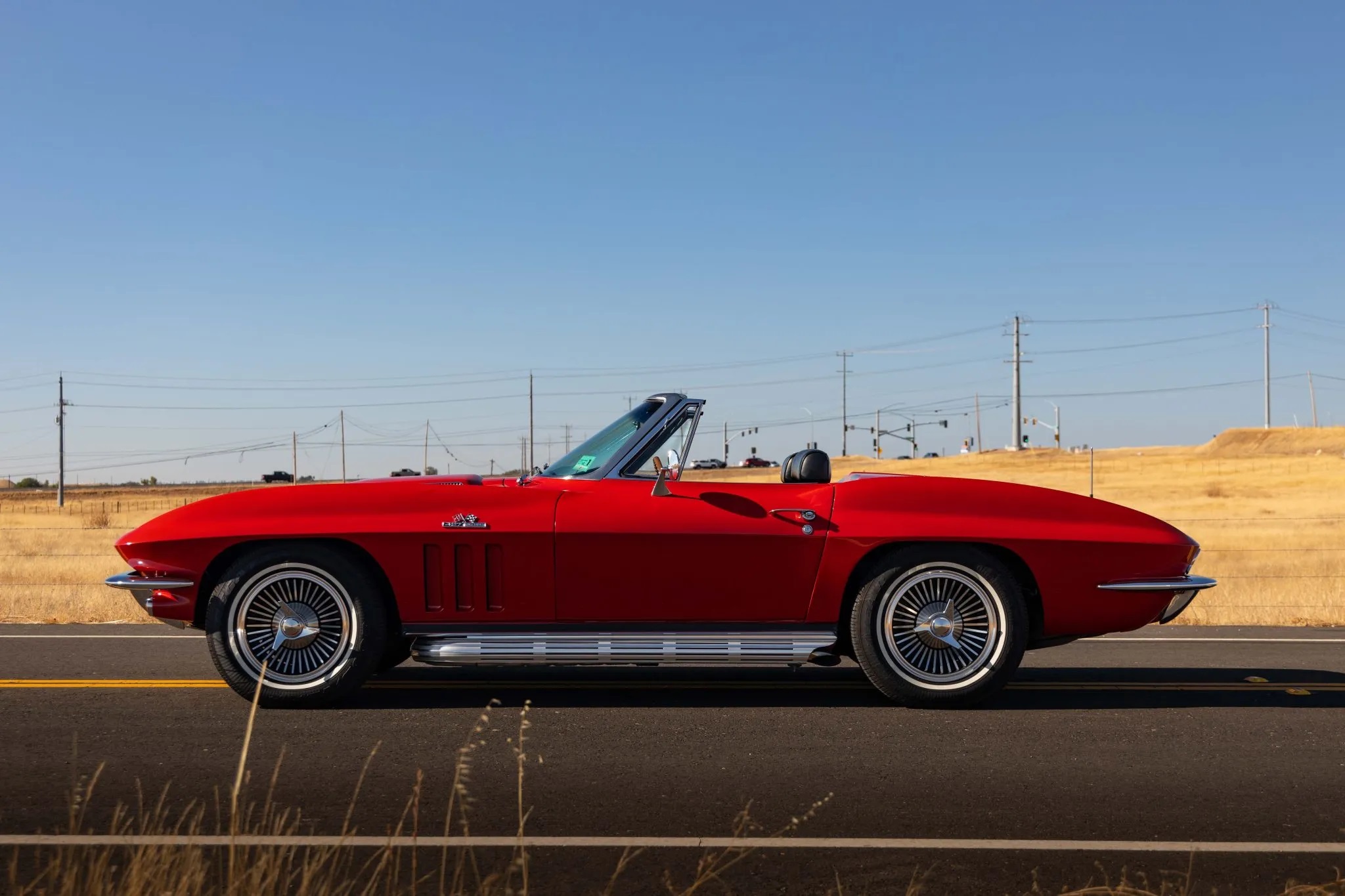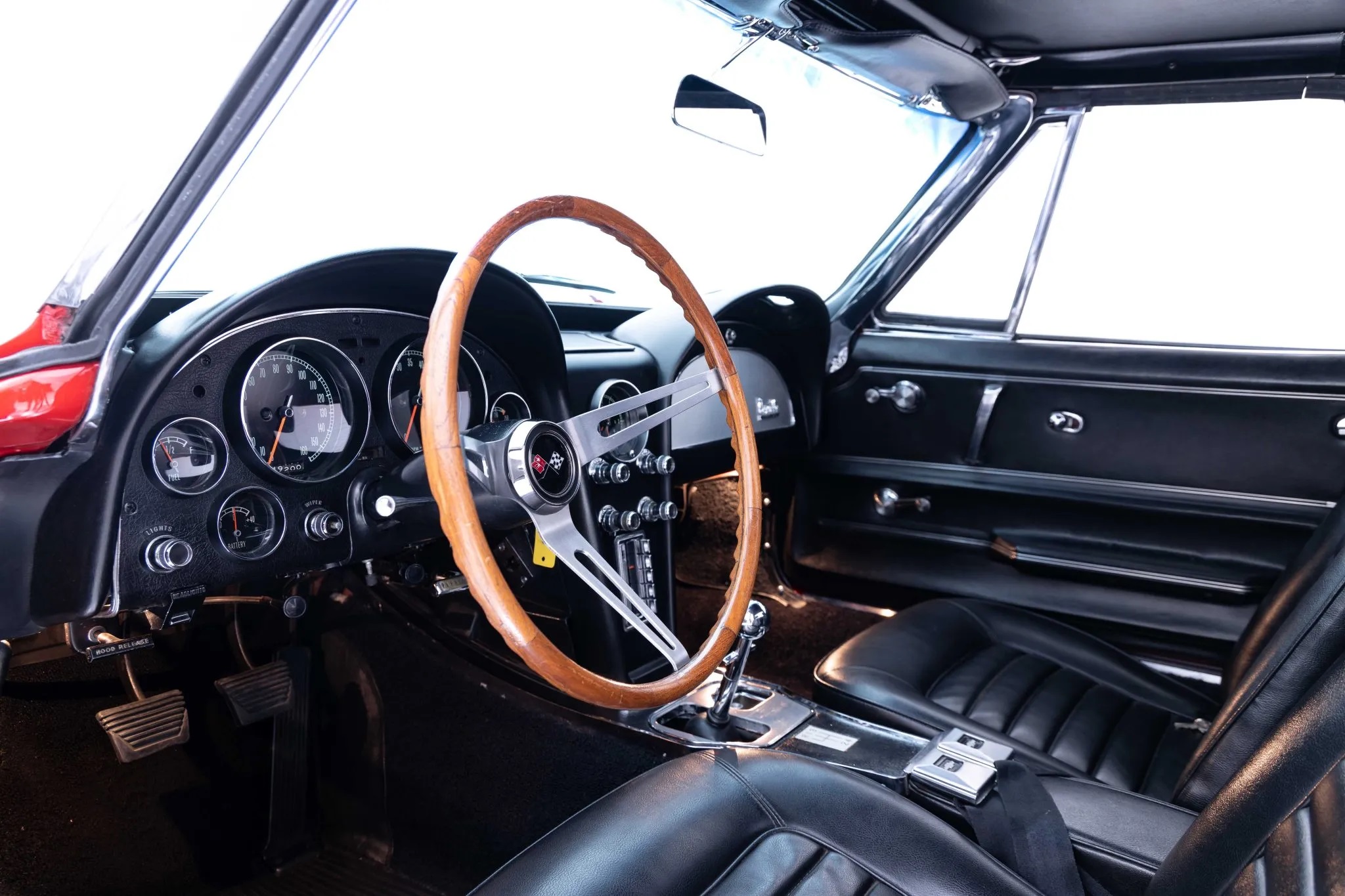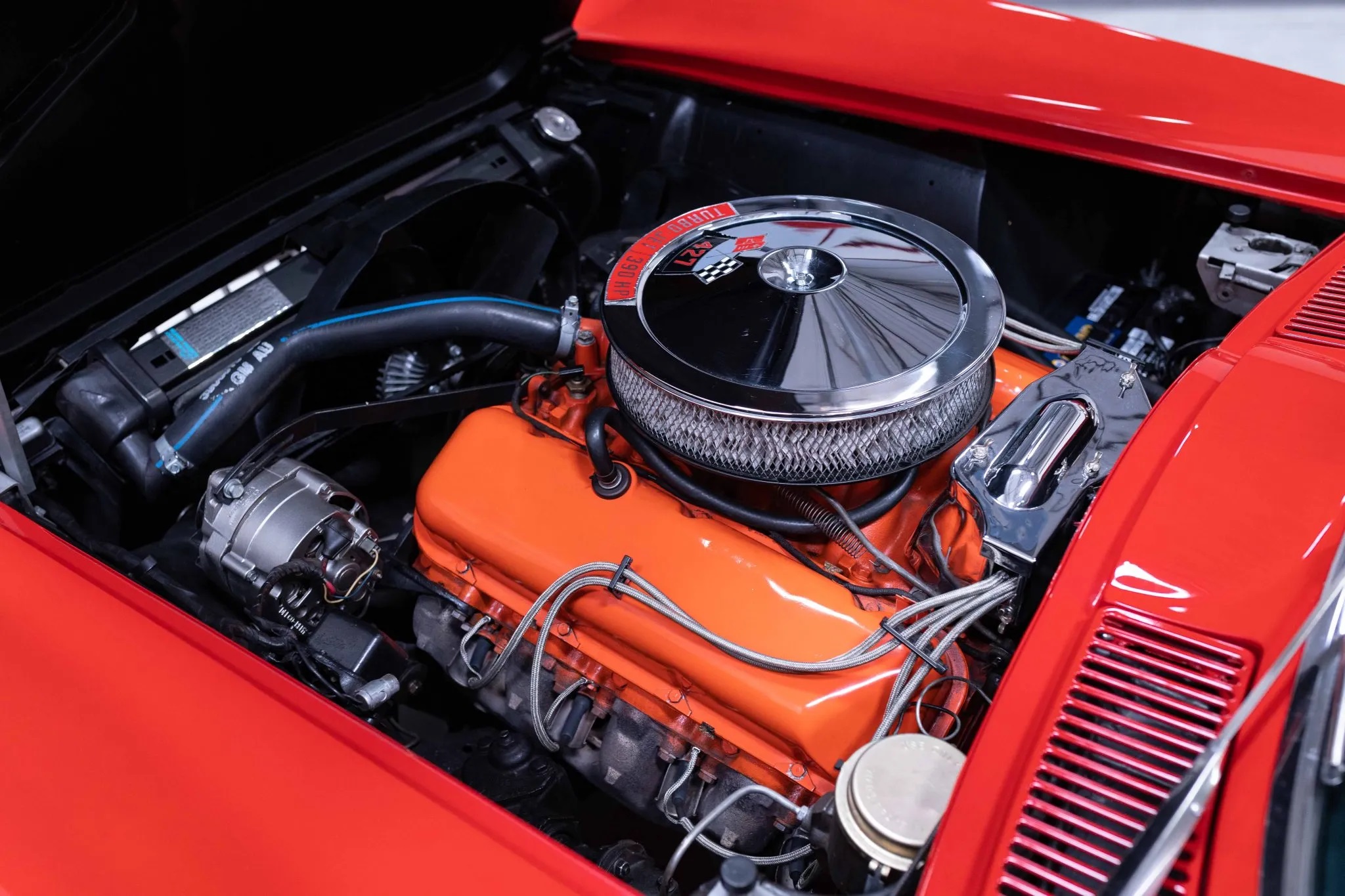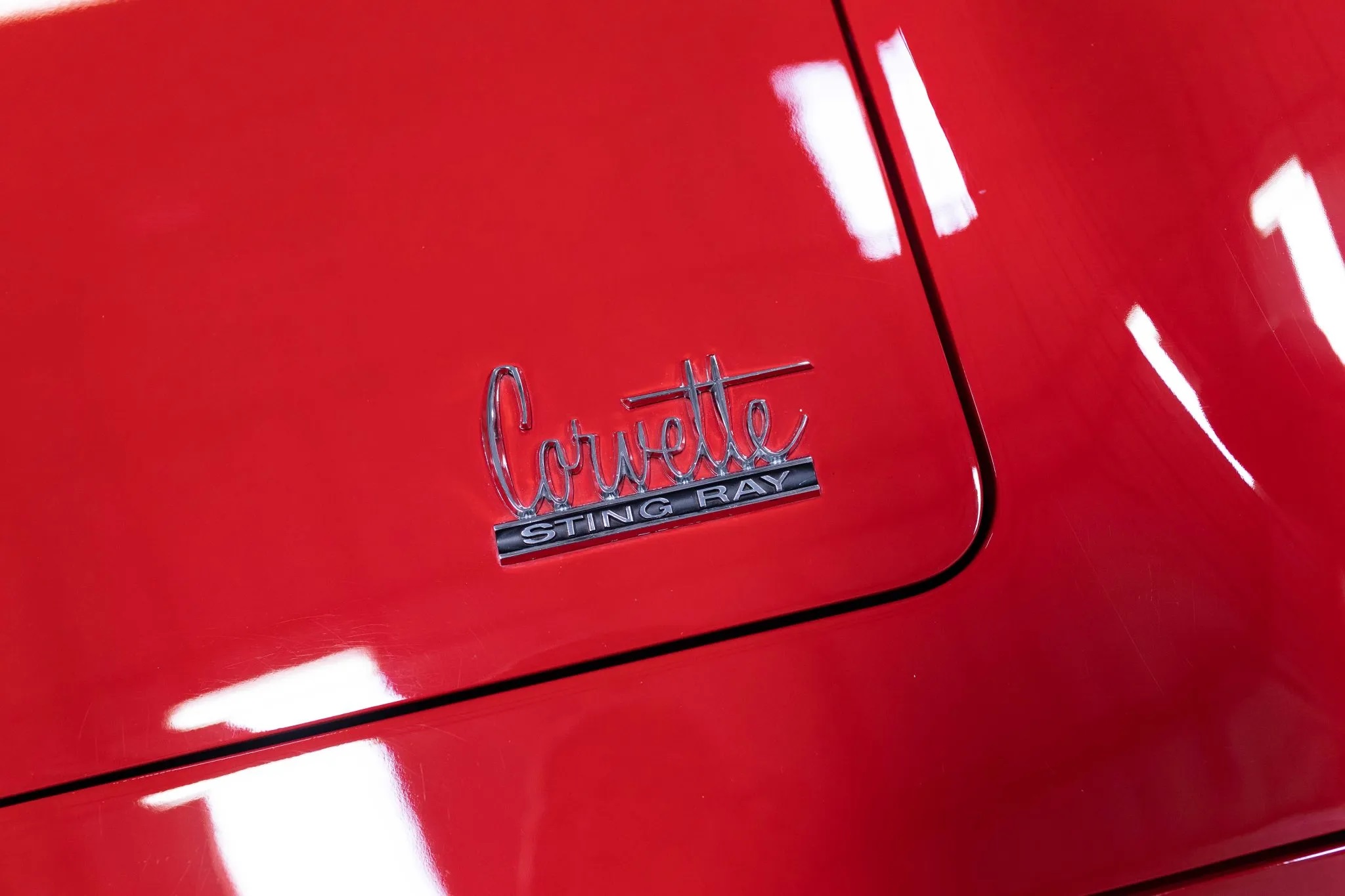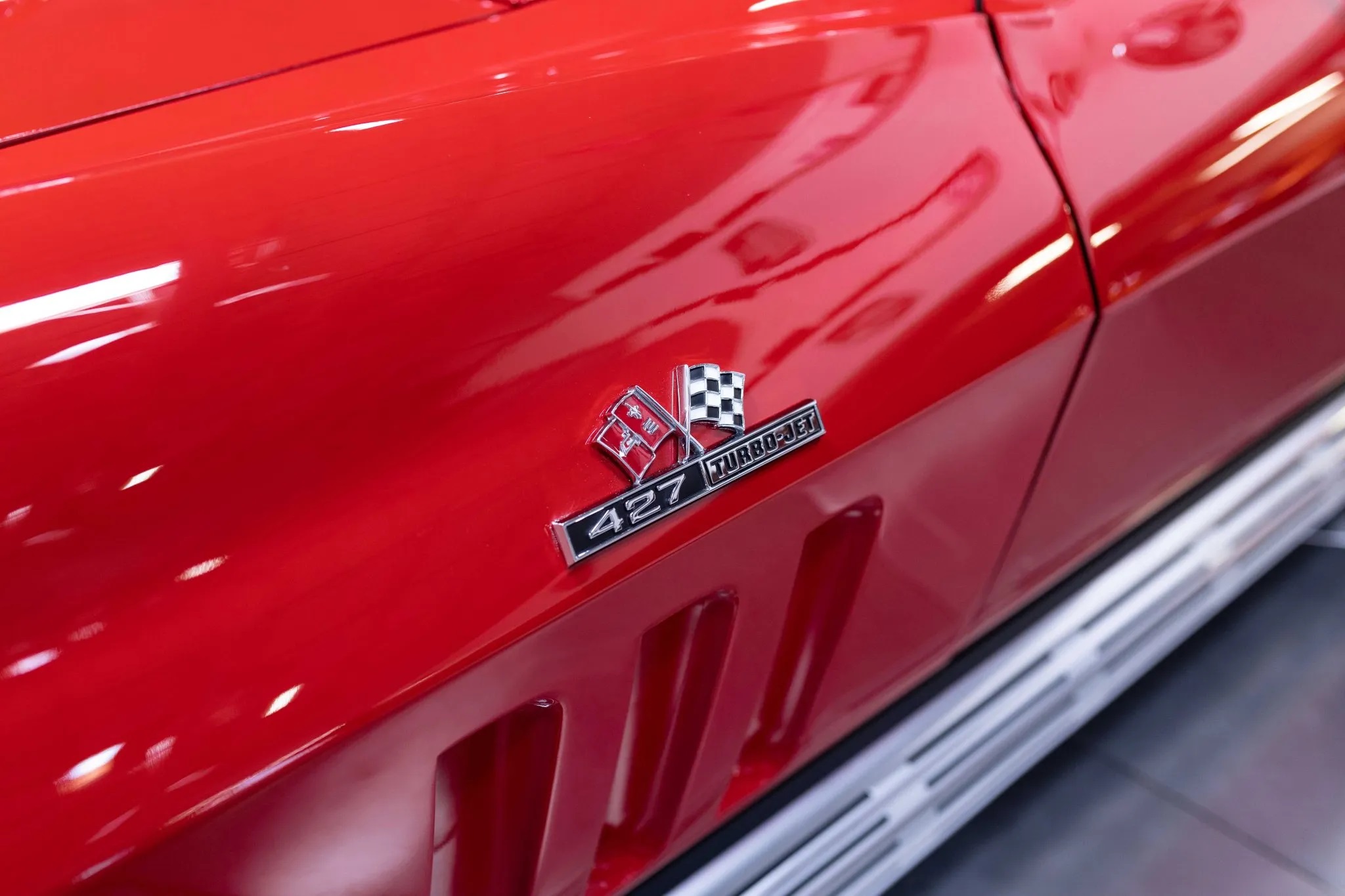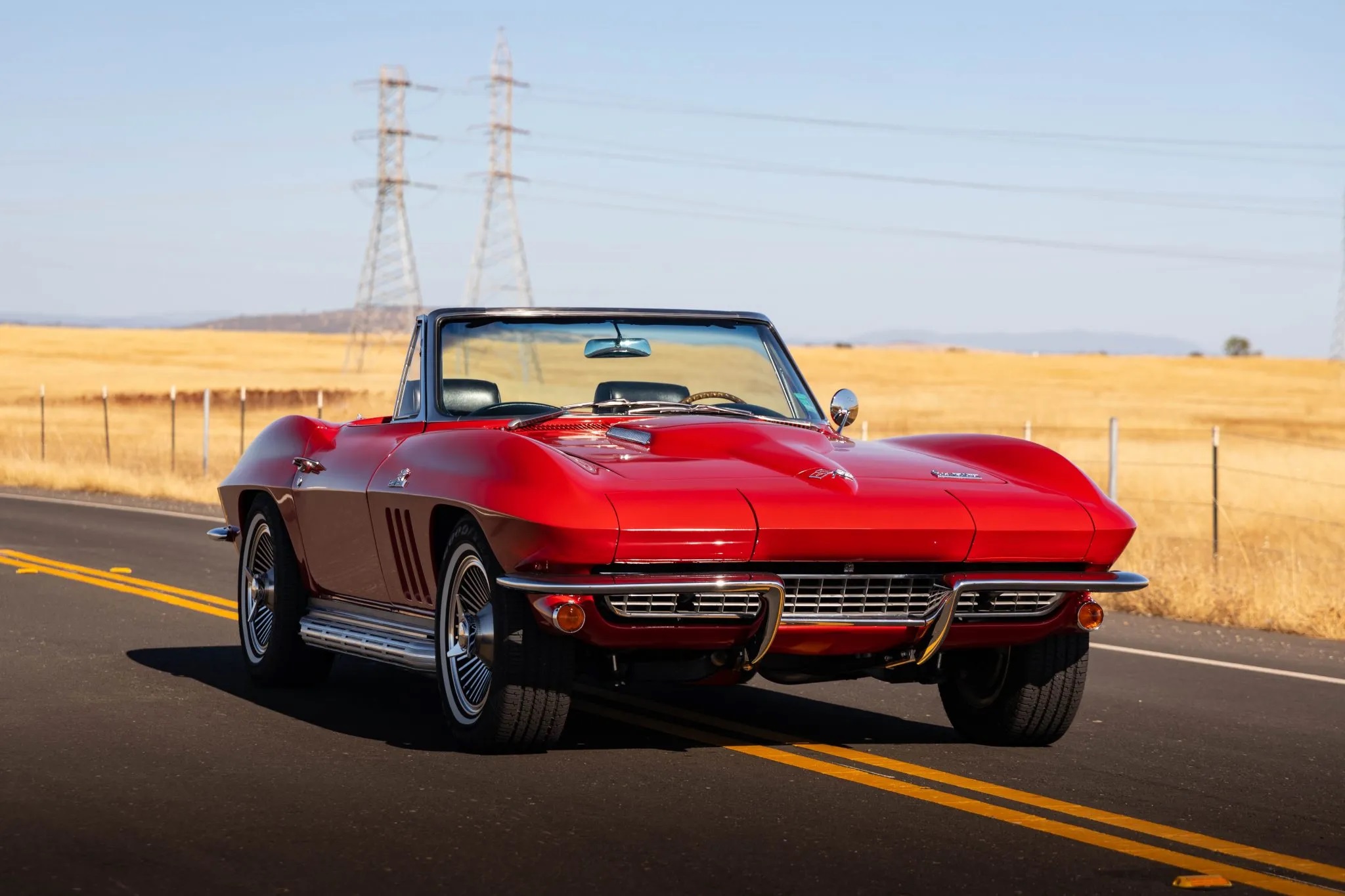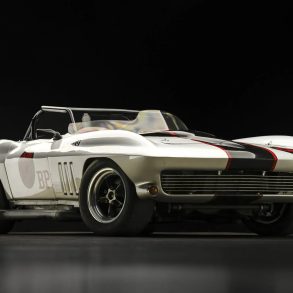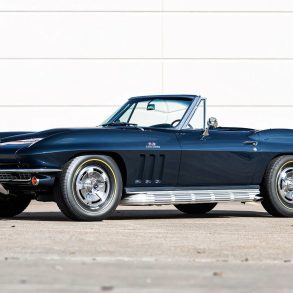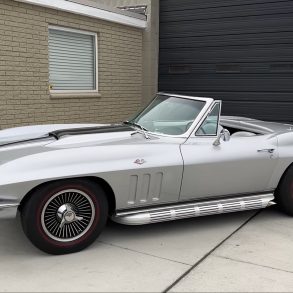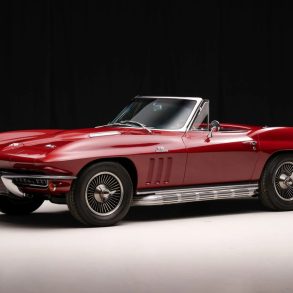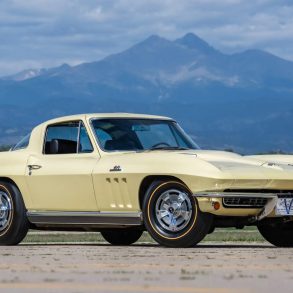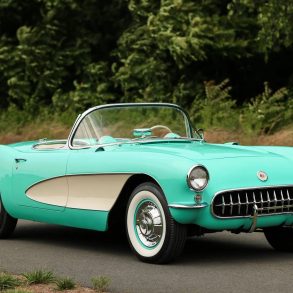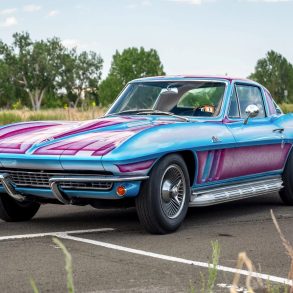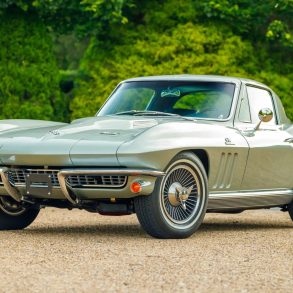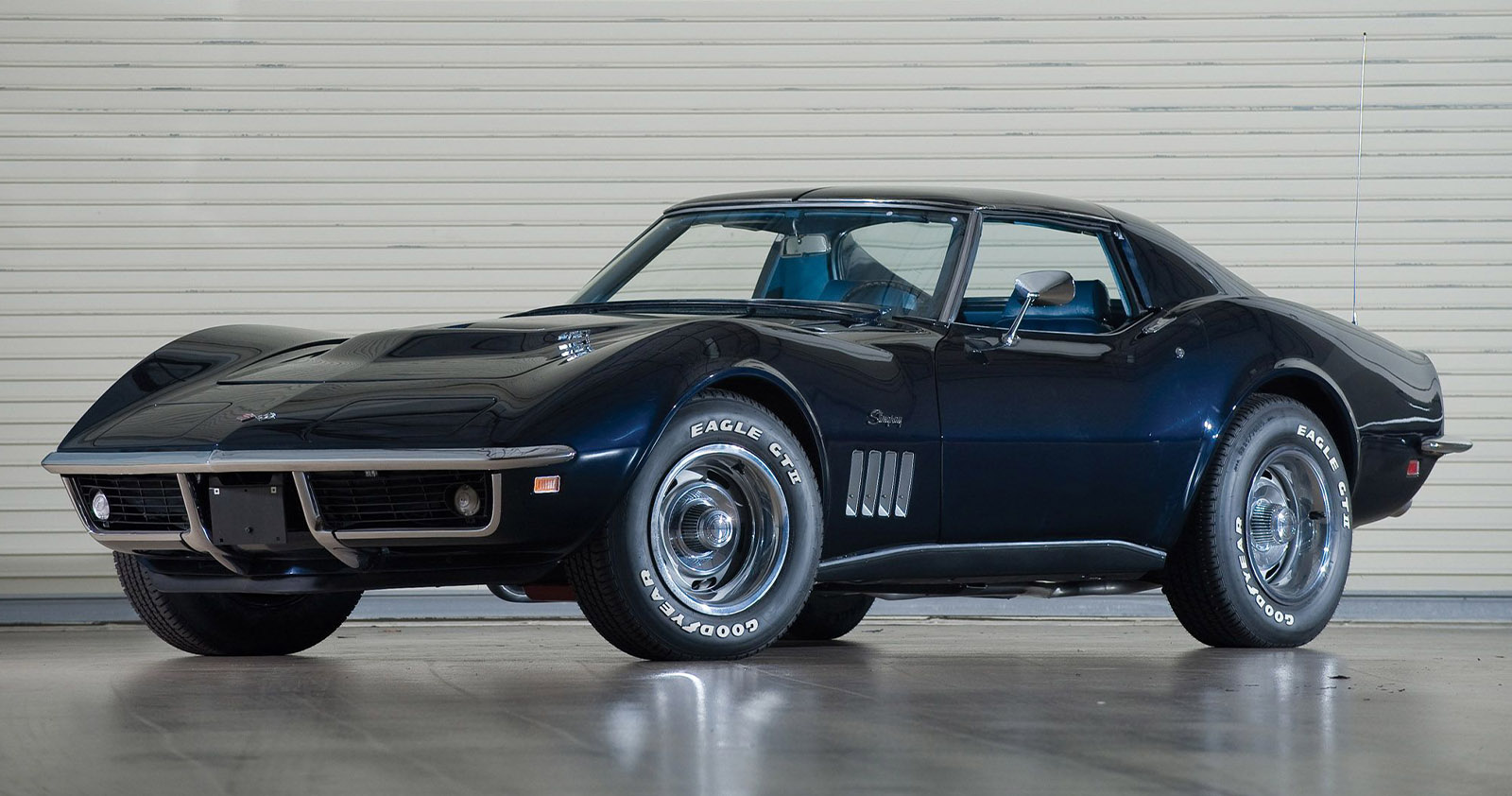The 1963-67 second-generation Corvette Sting Ray marked a significant evolution for the model. The sleek, futuristic body was influenced by early sketches from Peter Brock, Bill Mitchell’s SCCA Stingray racer, and production refinements by GM designer Larry Shinoda.
The Sting Ray offered various power options, catering to both grand touring and high-performance buyers. A new chassis showcased the Corvette’s maturing performance, introducing fully independent suspension in 1963 and four-wheel disc brakes in 1965, which boosted production to new record levels from 1963 through 1966.
By 1966, the Corvette had reached new heights in both performance and sophistication. Exterior updates included functional front fender vents, a revised grille, rocker trim, integrated back-up lights, and a Corvette script badge on the hood.
The introduction of the 427 CI big-block V-8 in 1966 further elevated its performance capabilities. Among the options, 5,116 buyers opted for the 427 CI RPO L36 engine, which delivered 390 HP for just $181.20, solidifying the 1966 Corvette as a street performance icon.
Photo Source: Bring A Trailer


